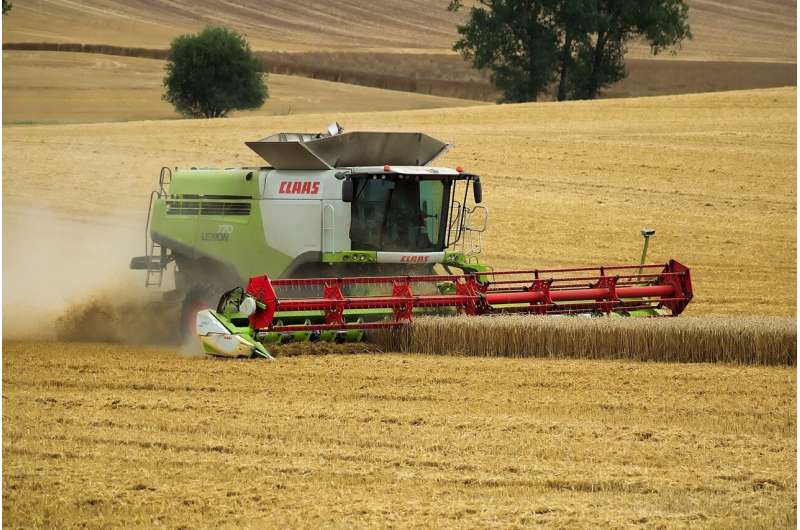This article has been reviewed according to Science X's editorial process and policies. Editors have highlighted the following attributes while ensuring the content's credibility:
fact-checked
peer-reviewed publication
trusted source
proofread
Researchers develop software with enhanced genome-sequencing powers for better plant breeding

A new software tool with enhanced genome-sequencing powers has been developed by the University of Adelaide, increasing the speed and accuracy at which researchers can improve plants through breeding.
These improvements will allow farmers to grow more resilient crops in a dynamically changing climate and landscape.
Called CoreDetector, the tool was created to efficiently handle more computationally challenging genome-sequencing tasks, such as aligning large and evolutionary diverse genomes of plants.
"Whole genome alignment of species remains an important method for determining structural and sequence variations of populations," said the University of Adelaide's Dr. Julian Taylor, who co-led the project.
"There are few tools that have the functionality to handle large and evolutionary diverse genomes, but CoreDetector harnesses the power of computational parallelization to undertake the cumbersome task of pairwise sequence alignment between population member genomes.
"The tool can be applied to a wide range of species—from kilobyte bacteria genomes to gigabyte plant genomes, like wheat—and even supports diploid organisms, such as humans and other animals."
CoreDetector's underlying research has been published in Bioinformatics, and the software has also been published on GitHub, making it free and accessible to anyone who can benefit from it.
This will have immediate benefits for the plant pre-breeding and breeding research community, especially those working with more complex plant genomes.
The software is Java-based and easily transportable between operating systems.
"As high-throughput sequence technologies become more advanced and more species can be sequenced, we believe free access to CoreDetector will continue to allow rapid advancement in genetic research of diverse populations," said the University's Dr. Fruzangohar, who also co-led the project.
"This will provide an efficient genome sequence analysis tool to plant breeders and researchers, which can form a component of an analytical pipeline for improving our genetic understanding of biological organisms."
Dr. Taylor and Dr. Fruzangohar are members of the Biometry Hub, within the University's School of Agriculture, Food and Wine. The Hub was established to provide a space for researchers to collaboratively develop statistical models and computational tools, like CoreDetector, to answer industry-relevant biological questions.
Although CoreDetector was only recently made publicly available, Dr. Taylor and Dr. Fruzangohar are already working on the next iteration of the technology.
"We aim to extend CoreDetector's theoretical and computational framework to obtain the core-genome plus accessory sequences of a population. This complete set of sequences is known as the pan-genome," said Dr. Taylor.
"We plan to collaborate with other bioinformaticians from external organizations linked to pan-genome research and develop a state-of-the-art heuristic algorithm to efficiently construct pan-genomes of populations."
More information: Mario Fruzangohar et al, CoreDetector: A flexible and efficient program for core-genome alignment of evolutionary diverse genomes, Bioinformatics (2023). DOI: 10.1093/bioinformatics/btad628
Journal information: Bioinformatics
Provided by University of Adelaide





















